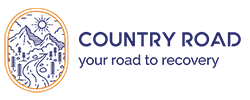Of the many frustrations that come from living with addiction in your family, denial may be the worst. It can feel like a cruel twist of fate that you spend days and nights tortured with worry about a loved one while they don’t even think they have a problem. But you know what they say about denial: It’s more than just a river in Egypt. It’s actually a complex coping mechanism that is one of the key signs of addiction. Understanding denial – and how to face it – is the first step in getting help for a loved one who suffers from substance use disorder.
What is Addiction?
Addiction is a chronic, progressive brain disease that causes someone to continue consuming substances that harm them, even when the negative impact of that behavior is obvious. Put simply, it’s like burning your hand on the stove and immediately touching the burner again. Although addiction affects an individual’s willpower and impulsivity, it is not caused by any lack of willpower. In fact, addiction is most often the result of long-buried trauma, emotional wounds, and mental or behavioral health disorders like depression, anxiety, or PTSD.
How to Know Someone Has a Problem with Addiction
Because addiction is a progressive disease like diabetes or asthma, it can be hard to notice the signs of addiction at first. It’s not something that happens overnight. Instead, you’ll start to become aware that addiction is at play as you see patterns of behavior – and negative consequences – emerging.
Addiction is not defined by how much you drink or use. Rather, it is defined by how you do it. For some people, two glasses of wine could be enough to derail their whole week. For others, it might take a whole lot more. People who struggle with addiction are united in this way, though: Deep down, they know that they should stop drinking or using, but they can’t.
As an outsider, the signs of that compulsion are obvious: missed days of work, financial difficulties, legal issues, health problems, relationship tensions, and more. All too often though, the person who is drinking or using has an excuse to explain away every issue – or seems to ignore them altogether.
Addiction & Denial
That’s because denial is a key symptom of addiction. It’s a paradox: What other disease can cause you to vehemently insist that you are perfectly healthy? The reason that denial is so closely tied to addiction is because of addiction’s ties to trauma and pain. As writer Shannon Alder said, “Denial is the way people handle what they can’t handle.”
If your loved one continues to deny that they have a problem, it doesn’t necessarily mean that they don’t know it. They just aren’t ready to face it yet.
How to Talk to Someone with an Addiction
Understanding that mindset can go a long way when trying to talk to someone with an addiction. To them, their addiction is a bruise that you are poking and the denial allows them to swat your hand away. Instead of continuing to press on their pain, why not try a different approach?
You can help your loved one feel safe and open to the conversation by addressing topics that take the spotlight off of their pain. You can talk about your experiences at an Al-Anon meeting, or share information you’ve found about residential addiction treatment, for example. Talking about their problem in a more roundabout way can feel safer to your loved one.
Sometimes, though, brutal honesty is the only way to break through denial. Getting real about the impact that your loved one’s behavior has had on you, or showing them the proof of the negative effects on their finances or health could be the thing that finally pushes them to get help.
Getting Help for Addiction
When it comes to confronting a loved one about their addiction, you don’t have to do it alone. Call our team for a no-pressure conversation about what you can do to cope with your loved one or help them find relief in residential addiction treatment. Denial doesn’t have to be a barrier to recovery. Your entire family could start a road to a better future, today.


